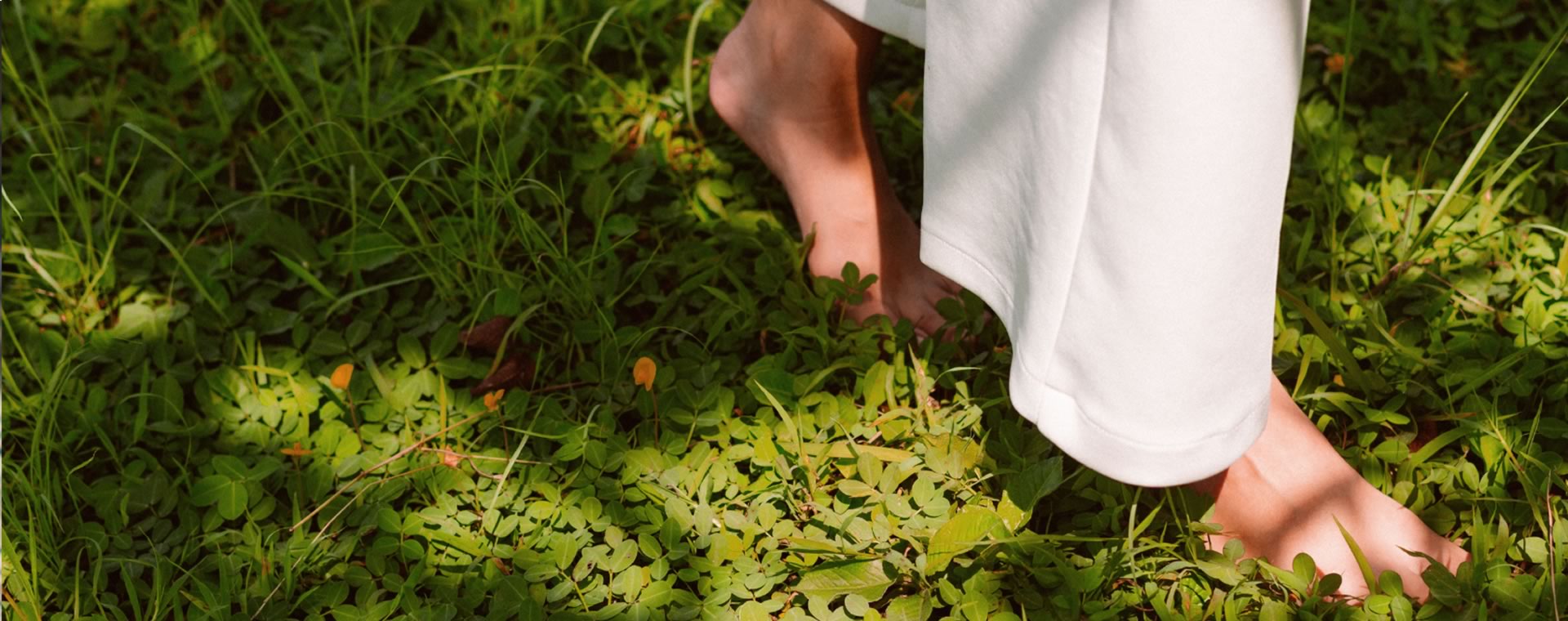Anxiety can feel overwhelming, isolating, and exhausting. If you’re navigating life with anxious thoughts or feelings, it’s important to know that you are not alone. Anxiety isn’t a character flaw or something you bring upon yourself. It’s a natural response to stress, uncertainty, or imbalance. Ayurveda, the ancient system of holistic healing, offers an understanding of anxiety that is compassionate, empowering, and deeply supportive. When combined with modern science, this approach offers a well-rounded perspective on how to address anxiety.
In Ayurveda, anxiety is often connected to an imbalance in Vata dosha, one of the three doshas or energies that influence how the body and mind operate. Vata represents the qualities of movement, air, and space. These are essential for creativity and change. But when out of balance, they can lead to overwhelm, restlessness, and anxiety.
Western medicine also aligns with this perspective. Anxiety is understood as a complex interaction of brain chemistry, environmental stress, trauma, and nervous system dysregulation. Both Ayurveda and modern science agree that anxiety has biological, emotional, and environmental causes. This makes it vital to address it holistically by supporting both mind and body.

How Many Times Have You Felt This Way?
How many times have you gone to the doctors with your anxious feelings, only to leave with a prescription to medicate rather than a deeper investigation into why you feel this way? Perhaps medication helped in the moment but left you feeling more out of control. Or maybe it dulled the feelings without addressing their root cause. You might feel stuck in a cycle, unable to escape the relentless grip of anxiety, or perhaps the feeling has become so familiar that anxiety has become your normal.
If this resonates with you, know that you are not alone—and this is exactly why support rooted in the why matters. Anxiety often signals that the body and mind are out of balance, and it deserves more than just a quick fix. You deserve care that helps you untangle those roots—without shame, without pressure, and with compassion.
Genetics, Environment, and the Patterns We Learn
Anxiety can also stem from genetics or early life experiences. For some people, anxiety has a biological predisposition—passed down through family members. If your parents or close relatives struggled with anxiety, your nervous system may be naturally more reactive. This makes you more likely to experience similar struggles.
On the other hand, anxiety can also be shaped by your environment growing up. Perhaps you grew up in a household or environment where anxiety was common, and this response became a learned behaviour. If this is the case, anxiety can feel like your normal because it has been a constant presence for as long as you can remember.
These patterns—whether inherited or learned—can make it harder to break free from anxiety. They are embedded in both biology and behaviour. But the good news is that, even when anxiety feels ingrained, it can be untangled. Ayurveda and modern science offer tools to support your body and mind in shifting these deeply ingrained patterns.

The Root Cause of Anxiety
From an Ayurvedic perspective, anxiety often stems from a disruption in the natural balance of the doshas, particularly Vata dosha, which governs motion, thought, and creativity. When Vata becomes unbalanced—due to stress, poor diet, lack of sleep, overstimulation, or seasonal changes—it can lead to racing thoughts, restlessness, poor concentration, and emotional instability.
Western science identifies anxiety as involving a dysregulation of neurotransmitters like serotonin, dopamine, and gamma-aminobutyric acid (GABA). These neurotransmitters regulate mood, emotion, and stress responses. An imbalance in these neurotransmitters can leave the nervous system in a constant state of ‘fight-or-flight,’ amplifying anxious feelings. Ayurveda identifies imbalances in terms of elemental forces. Modern science traces these disruptions to biochemical processes in the brain and nervous system. Both perspectives converge on the idea that anxiety can be regulated by restoring balance—whether that means rebalancing doshas or supporting neurotransmitter health.

The Ayurvedic Approach to Anxiety
Ayurveda treats anxiety with compassion and self-awareness rather than judgment. Its approach is about creating equilibrium and harmony through diet, lifestyle, meditation, and mindful routines. Ayurveda recognises that your body has its own natural ability to heal when given the right support, and it focuses on rebalancing your individual mind-body type.
Here are some ways Ayurveda suggests you can restore this balance:
1. Ground Yourself with Warmth and Stability
Anxiety makes us feel ‘ungrounded’—as if we’re floating without support. Ayurveda recommends practices that provide grounding. This can include drinking warm herbal teas, eating nourishing, warm foods like soups or root vegetables, or using gentle grounding practices like self-massage with warm oil (known as Abhyanga).
In modern scientific terms, grounding techniques are linked to bringing the body out of a hyperactive stress response. Warmth and physical touch can help regulate the vagus nerve, which plays a key role in calming the nervous system.

2. A Gentle Daily Routine
Structure and routine can provide a stabilising anchor for the mind. Ayurveda highlights that Vata thrives on rhythm and predictability. A regular sleep schedule, consistent meal times, and mindful practices can create stability in the body and mind.
Scientific studies show that routines regulate the body’s cortisol levels (the body’s stress hormone) and create a sense of psychological safety, which is essential for managing stress and anxiety.
3. Breathe to Calm the Nervous System
Ayurveda places great emphasis on controlled, mindful breathing to calm Vata. Techniques such as deep belly breathing, alternate nostril breathing (Nadi Shodhana), or slow, steady inhalations and exhalations can effectively soothe the nervous system.
Western science backs this up with evidence showing that deep, rhythmic breathing activates the parasympathetic nervous system—the body’s natural ‘rest and digest’ response—reducing the effects of the stress response.
Come along to Savannah’s Workshops or book a private session online to learn how to best utilise your breath to calm your nervous system!

4. Choose Gentle Movement
Movement is a fantastic way to release nervous energy. Gentle, mindful exercise—like yoga, walking, or stretching—can calm an overstimulated nervous system without further aggravating Vata imbalances. Physical activity works by lowering cortisol levels and releasing endorphins, natural mood stabilisers in the body.
Learn ways to stretch that best suits any aches and pains alongside an Osteopathy session with Emily, or book a private session with Savannah for a Yin Yoga or Hatha Practice.
5. Explore Herbal Support for Nervous System
Ayurveda incorporates herbal remedies as part of its holistic approach to anxiety. Ashwagandha, Brahmi, and Jatamansi are well-known Ayurvedic herbs that support the nervous system by reducing Vata imbalances. Modern science supports the use of these herbs as adaptogens, which help regulate the body’s stress response and balance cortisol levels.
But be sure to check with your Doctor, Herbalist or Ayurvedic Practitioner before using herbal support you are unsure of.

6. Prioritise Stillness and Silence
Anxiety is often amplified by overstimulation. Creating quiet moments throughout the day can help you reconnect with your mind and body. Scientific research supports this idea, showing that reducing noise and allowing for stillness can regulate arousal and decrease anxious feelings.
How We Can Support You at Alleviate Holistics
At Alleviate Holistics, we offer a compassionate, holistic approach to healing. As co-founders, Emily (osteopath and medical acupuncturist) and I, Savannah Jayne (offering Ayurvedic consultations, yoga, sound healing, and workshops), combine our unique skills to help you find balance and restore equilibrium.
Emily uses her expertise in osteopathy and medical acupuncture to address physical stress, nervous system imbalances, and musculoskeletal concerns with gentle, personalised care.
I offer Ayurveda consultations, sound healing, yoga, and workshops that blend ancient wisdom with modern science, supporting emotional, mental, and physical well-being through movement, mindfulness, and personalised guidance.
Together, we integrate Eastern and Western practices to uncover the root causes of anxiety and provide practical, compassionate tools to help you move beyond symptoms and into balance, clarity, and strength.
You’re not alone. Whether it’s stress, emotional overwhelm, or physical tension, Alleviate Holistics provides a safe space for healing, restoration, and connection to your inner strength.
Contact us today so we can help you feel your best!



